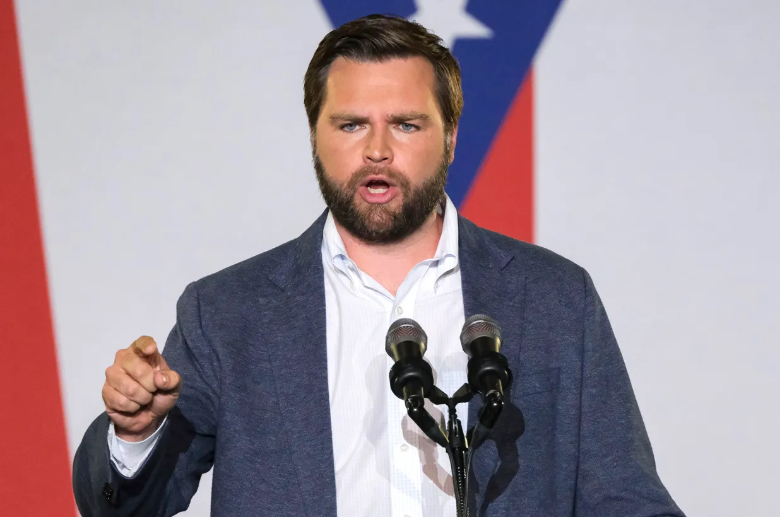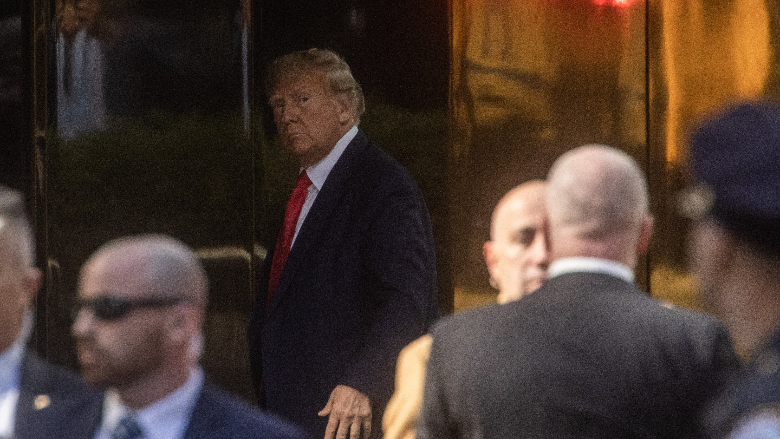In a heated interview on CNN, Ohio Senator J.D. Vance took on anchor Jake Tapper, pushing back against what he described as biased attacks on former President Donald Trump and the “war-hawk agenda” of Trump’s critics in Washington. Vance used the national spotlight to defend Trump’s policies, challenging the accusations brought by Tapper and calling out what he saw as CNN’s skewed narrative about Trump’s legacy.
The interview started with Tapper questioning Vance over recent statements by Trump’s former Chief of Staff, General John Kelly. Kelly, who served in Trump’s administration, recently accused Trump of displaying authoritarian tendencies and claimed Trump had considered using the military against political opponents. Tapper presented these claims as further evidence of Trump’s alleged threat to democracy, but Vance was prepared to dispute them.
Vance quickly countered Kelly’s claims, calling them “baseless” and asserting that Kelly and other former officials were motivated by a “war-hawk agenda” rather than a genuine concern for American democracy. Vance argued that this agenda has historically dominated Washington and suggested that Trump’s resistance to endless foreign interventions has put him at odds with a bipartisan establishment focused on maintaining global conflict.
As Tapper pushed the conversation further, questioning Trump’s rhetoric about the “enemy within” — a term some have interpreted as a reference to political opponents like Nancy Pelosi and Adam Schiff — Vance clarified that Trump’s remarks were directed toward violent rioters who posed an immediate danger to public order. Vance accused Tapper of intentionally misinterpreting Trump’s words to fit a divisive narrative, one that paints the former president as a figure driven by hostility toward his political adversaries rather than genuine public safety concerns.
The exchange grew increasingly tense, with Tapper attempting to characterize Trump as a destabilizing force in American politics. Vance, however, stayed on message, arguing that focusing on Trump’s personality and controversial rhetoric serves to distract from his tangible policy achievements. “This fixation on Trump’s style,” Vance argued, “detracts from the real impact his policies had on strengthening America.” Vance pointed to Trump’s focus on border security, economic growth, and pro-family policies as concrete examples of his success, policies that Vance claimed have had a measurable, positive effect on American lives.
Tapper appeared visibly frustrated at points during the interview, often interrupting Vance to press him on points he felt went unaddressed. However, Vance maintained his composure, taking every opportunity to underscore his view that Trump’s policies have been unfairly distorted by the media. Vance directly challenged CNN’s bias, saying that its focus on sensational stories about Trump, rather than a balanced analysis of his administration, reflects the network’s far-left leanings.
In response, Tapper pressed Vance on Trump’s repeated clashes with members of his own administration, suggesting that these disputes reflect Trump’s inability to work with others. Vance countered that Trump’s willingness to shake up Washington and challenge the status quo has earned him powerful detractors, especially those with ties to what he described as a “permanent war economy.” Vance reiterated his support for Trump’s America First agenda, arguing that it represents a break from the long-standing policies of U.S. intervention abroad, policies he believes have often put American lives at risk for limited national benefit.
The interview’s final moments saw Vance double down on his defense of Trump, noting that while the former president’s style may be polarizing, his policies have been instrumental in protecting American jobs, bolstering border security, and enhancing public safety. Vance stated that the media’s tendency to focus on Trump’s controversies is an attempt to discredit his accomplishments, which he contends include prioritizing working-class Americans over foreign policy entanglements.
Vance’s remarks also highlighted his view that media outlets like CNN often amplify negative narratives surrounding Trump in order to promote a particular political agenda. He argued that this selective reporting does a disservice to viewers, who may not receive an unbiased view of Trump’s time in office. This, Vance claimed, is why he and others have felt compelled to correct what he sees as misinformation, especially when such narratives could influence public perception in critical election years.
The exchange between Vance and Tapper underscores the ongoing tensions between Trump allies and mainstream media outlets. For Vance and others who support Trump’s policies, the fight over how Trump is portrayed in the media is part of a larger battle to ensure that Americans receive a full and balanced picture of his record, rather than a narrative driven by partisan interests.
While Vance’s unapologetic defense of Trump may resonate with his base, the contentious nature of the interview reveals the deep ideological divides that continue to shape U.S. politics. Both Vance’s supporters and his critics are likely to interpret the interview through their own perspectives, reflecting the polarized media landscape in which American voters consume information. Vance’s defense of Trump as a misunderstood reformer, counter to the media’s characterization, illustrates the larger struggle between Trump-aligned Republicans and media outlets perceived as unsympathetic to their platform.
WATCH:

